
Introduction
A cough is the body’s way of getting rid of things that should not be in the airway. However, a constant cough in kids can disrupt their day-to-day lives, making them uncomfortable. Therefore, knowing the different types of coughs, their causes, and providing effective care is important. Healthcare professionals should also guide parents as they deal with these symptoms.
In this article, we will explore the types and causes of a constant cough, how to detect the cause, and steps to manage it effectively. We’ll also answer some common questions from parents regarding this topic.
Understanding the Types of Coughs in Children
There are two main types of coughs, which are as follows:
- Dry Cough: A dry cough sounds like a tickle in the throat but does not bring up any mucus or phlegm1. Often, it’s because of irritation in the upper airways1,2.
- Wet Cough: A wet cough is different. It produces mucus or phlegm. This suggests there is irritation in the lower airways or lungs1,2.
It’s crucial to find out what’s causing this type of cough for effective management.
Causes of Constant Cough in Children
To manage a constant cough in children effectively, we must first get a clear picture of what may be causing it. The following may be the causes of a constant cough in children.
1. Infections
Different types of viral or bacterial infections can cause a dry cough in children2,3.
- Common Cold: This illness is caused by rhinoviruses and impacts the upper respiratory tract. It can give rise to symptoms like sneezing, a runny nose, and coughing2.
- Influenza (flu): Flu is a contagious disease impacting the air passages, caused by the influenza virus. It can trigger symptoms like a cold, but more severe3.
- Pneumonia: Pneumonia is the inflammation of the lungs, caused by either bacteria or viruses. It may give rise to rapid breathing, grunting or wheezing sounds, and a cough3.
- COVID-19: The SARS-CoV-2 virus causes COVID-19. This illness can lead to mild to severe symptoms, including a dry, continuous cough. Depending on the severity of symptoms and the child’s overall health, it might need medical attention4.
- Bronchiolitis: Bronchiolitis occurs when the tiny airways in the lungs, called bronchioles, get swollen because of a viral infection. The swelling and build-up of mucus can cause trouble while breathing and a cough3.
- Pertussis (Whooping cough): Known also as whooping cough, pertussis is a bacterial infection of the airways. It leads to violent, hard-to-control coughing, which can make it difficult for a child to breathe3.
2. Allergies
Allergies occur when the immune system overreacts to an allergen. When this happens, the body releases a chemical called histamine, which can lead to symptoms in the airways, including a dry cough. Usual triggers for allergies include pollen, animal fur, certain foods, and medicines5.
3. Asthma
Kids suffering from asthma can have a constant dry cough caused by inflammation and narrowing of airways2. This can disrupt their day-to-day life. If your child has frequent bouts of coughing, shortness of breath, or wheezing, it’s crucial to consult a doctor about possible asthma.
4. Environmental Irritants
Things like air pollution, cigarette smoke, or strong chemicals can irritate a child’s throat and airways, leading to a cough5. Getting rid of these irritants may help stop the cough.
5. Inhaled or Swallowed Foreign Object
Children often put tiny toys or objects in their mouths. If swallowed or inhaled, these can get stuck in the airway and cause a cough as the body tries to remove them. Immediate medical attention is needed in such cases to avoid suffocation.
6. Gastroesophageal Reflux Disease (GERD)
In GERD, stomach acid flows back up into the food pipe, causing irritation and swelling2. Chronic coughing caused by GERD can be managed by lifestyle changes and medicines that tackle acid reflux.
7. Somatic or Habitual Cough
A somatic or behavior-linked cough is rare in children, typically presenting when there are no underlying physical reasons. This is more psychological in origin. Dealing with any mental issues may help stop this type of cough.
Diagnosing the Cause of Cough in Children
Getting a full picture of a child’s health history and doing a physical check-up can provide key insights into a child’s constant cough. To find the cause, your healthcare professional may recommend several tests, which are as follows.
- Clinical Examination: A doctor will take notice of the child’s symptoms, breathing, and general health during a check-up. They will also ask questions about when the cough started, how long it has been going on, and if other symptoms accompany it.
- Imaging Tests: Imaging tests like X-rays or CT scans can allow doctors to see if there are problems in the lungs (like pneumonia), infections in the sinuses, or foreign items in the airway.
- Lung Function Tests: Tests of lung function, like spirometry, can measure airflow and the capacity of the lungs. This helps in diagnosing conditions like asthma or other issues with breathing.
- Spirometry: Spirometry looks at the flow and volume of air in and out of the lungs and can help diagnose issues like asthma or chronic obstructive pulmonary disease (COPD).
- Laboratory Tests: A healthcare professional may test a sample of the mucus to look for bacteria or other microbes causing an infection.
- Interventional Tests: In some instances, interventional tests like bronchoscopy or rhinoscopy can provide a visual of the air passages and the nasal cavities to find potential culprits of the cough.
Professional Advice for Stopping Constant Cough in Children
There are many ways to ease a constant cough in children, depending on what’s causing the cough.
1. Cough Suppressants and Medications
A healthcare professional might suggest cough suppressants that can be bought over-the-counter (OTC), or those that need prescriptions, based on the child’s age and what’s causing the cough. Always follow the professional’s advice on giving the right medicine and dosage.
- Over-the-counter (OTC) Medications: Some OTC cough medicines might be safe for kids over 6 years old. Always first discuss it with a doctor before giving your child any OTC medicine and always follow the instructions about the dose and how long to give it.
- Prescription Medications: Depending on what’s causing the cough in your child, a doctor might suggest antibiotics for bacterial infections, antihistamines for allergies, or expectorants to loosen mucus7.
2. Lifestyle and Home Remedies
Trying remedies at home may often bring relief from cough symptoms. They also may support medical management.
- Using Saline Nasal Drops: Saline nasal drops may help soften mucus and are safe for kids8. Use them as directed to ease congestion and coughs brought on by post-nasal drip.
- Providing Adequate Fluids: Keeping a child with a cough well-hydrated is crucial. Water helps thin mucus in the airways, and helps soothe a sore throat. Make sure to keep offering fluids to your child regularly to make them feel better.
- Offering Honey (for children over 1 year): Honey may help alleviate cough symptoms in children older than one year. It can help because it works against bacteria. Offer a spoonful of honey or mix it in warm water or milk to reduce throat irritation and coughing. But never offer honey to babies under 12 months old, as it can be harmful to them9.
- Elevating the Child’s Head While Sleeping: Use pillows or a rolled-up towel to lift the head end of your child’s bed. This may reduce late-night bouts of coughing brought on by post-nasal drip or acid reflux. Always consult your healthcare professional before doing this, and don’t use pillows for babies younger than a year as it leads to SIDS.
- Adding Moisture with a Humidifier or Vapouriser: Using a cool-mist humidifier or vapouriser adds moisture to the air. It keeps the child’s airways moist and brings down any irritation. Just remember to keep the appliance clean and to take care of it as the manufacturer suggests.
- Using Essential Oils: Some essential oils may help soothe cough symptoms10. Always ask your healthcare professional before using them, particularly for small kids. There could be age restrictions, proper dosing guidelines, or safety issues to consider.
Giving the child warm chicken soup may help in soothing their cough. Some studies12 even showed that chicken soup may reduce inflammation. This anti-inflammatory effect might explain why it helps people during coughs. You can add both vegetables and chicken in the soup and serve it as a healthy snack.
Dr. Nayana Shetty, MBBS MD
3. Managing Underlying Causes
Apart from easing the symptoms, managing the root cause of cough is vital.
- Infection Management: Depending on the sort of infection, doctors might prescribe antimicrobial drugs. Make sure your child completes the full course of medicine as told.
- Allergy Management: Proper control of allergies involves avoiding triggers, using OTC or prescription drugs as recommended by a doctor, and in some instances, undergoing immunotherapy (wherein the child is exposed to the allergen in small doses over a long period).
- Asthma Control: Managing asthma needs ongoing management, regular monitoring, and a plan of action created by a healthcare professional. Devices like inhalers or nebulisers, along with other medicines, may help manage symptoms and avoid problems.
- GERD Management: Managing GERD may need lifestyle changes, like changes to diet and sleep positions, or drugs to reduce stomach acid. In severe cases, surgery may be needed.
- Somatic Cough Management: A somatic cough might need consultation with a therapist or psychiatrist who might suggest therapy or other steps to address the underlying mental issue.
Ginger might effectively reduce cough in children. It contains natural compounds that provide anti-inflammatory and antibacterial benefits, making it a safe and effective option for managing cough without side effects13.
Dr. Nayana Shetty, MBBS, MD
When to Seek Professional Help?
Even though most coughs get better within 1-2 weeks, it’s important to know when your child should see a doctor.
Signs That Indicate the Need for a Doctor’s Appointment
If your child has a cough that has been going on for more than 2 to 3 weeks, a high fever that’s been there for more than three days, rapid breathing, breathlessness, chest pains, blood in the mucus, strangely colored mucus, signs of dehydration/low energy, irritability or cough leading to sleep problems, then you must seek immediate medical help2,11.
Preparing for Your Child’s Appointment
Be sure you are well-prepared to discuss your child’s cough with a doctor.
Write down your child’s symptoms, when they begin, and if there have been changes. Also, list any medicines, supplements, or therapies that your child is taking or has taken. It could also help to note any allergies or triggers for the cough.
- What to Expect from Your Doctor?
The doctor will likely ask about your child’s symptoms, examine them, and inquire about their past health record. They may also recommend tests to find the cause of the cough and offer suitable management options.
Also Read: Home Remedies for Cold in Infants and Babies
Helping Your Child Reduce the Risk of Future Coughs
Reducing the risk of future coughs requires maintaining good health and hygiene practices.
- Hygiene Practices: Encourage your child to wash their hands often, cover their mouth when they cough or sneeze, and keep them away from people who are sick to reduce the chance of getting a cold or infection.
- Managing Allergies: Work with their healthcare professional to create a plan to manage allergies which could include avoiding triggers, using medications, and possibly immunotherapy.
- Monitoring and Addressing Environmental Irritants: Identify and reduce exposure to irritants like tobacco smoke, air pollution, and strong smells. Make sure your child has a clean and healthy environment at home and school.
- Tips for Strengthening Your Child’s Immune System: Keeping the immune system healthy is key to reducing the risk of future illnesses and coughs. Make sure your child has a balanced diet with fruits, vegetables, proteins, and whole grains. Encourage regular physical activity and good sleep each night.
Also Read: When Do Babies Start Teething: A Detailed Development Timeline for New Parents
Conclusion
A constant cough in children can be bothersome and stressful but understanding the various causes and management options can enable parents to take charge. Whether it’s a small change in lifestyle or seeking professional medical help, managing the root cause of a child’s cough is key to handling symptoms. Remember that acting early and making informed decisions are key parts of helping your child lead a happy and healthy life.
Also Read: 11 Signs of Type 1 Diabetes in Children You Must Not Ignore
Frequently Asked Questions (FAQs)
How do you stop an uncontrollable cough in a child? Finding and managing the root cause, keeping your child well-hydrated, and trying soothing home remedies like saline nasal drops might help manage the child’s cough. Always check in with your healthcare professional for proper recommendations.
How can I help my child with a dry cough? In these cases, make sure your child is getting enough fluids. Use saline nasal drops, elevate their heads and place a humidifier around them. Always get advice from your healthcare professional before giving any essential oils, drugs, or other management to make sure they are safe for your child.
When should I be concerned about my child’s cough? If your child’s cough goes on for more than 2-3 weeks, breathing gets difficult, there’s a high fever for over three days, or any other worrying symptoms. Of course, in these cases make an appointment with a healthcare professional.
What is the best cough suppressant for kids? The best cough suppressant will depend on what is causing the cough and your child’s age. Always ask your healthcare professional for advice on the best management options or medicines.
Should I take my child to the doctor for a dry cough? If your child’s dry cough goes on for more than two weeks, gets worse with time, or there are other worrying symptoms along with it, check in with your healthcare professional to find the cause and plan for management.
References
- Chung KF, Bolser D, Davenport P, Fontana G, Morice A, Widdicombe J. Semantics and types of cough. Pulm Pharmacol Ther. 2009 Apr;22(2):139-42. Available from: https://pmc.ncbi.nlm.nih.gov/articles/PMC2928552/
- Sharma S, Hashmi MF, Alhajjaj MS. Cough [Internet]. StatPearls Publishing; [updated 2023 Aug 8; cited 2025 Oct 17]. Available from: https://www.ncbi.nlm.nih.gov/books/NBK493221/
- Worrall G. Acute cough in children. Can Fam Physician. 2011 Mar;57(3):315–8. Available from: https://pmc.ncbi.nlm.nih.gov/articles/PMC3056681/
- Liu L, Zhang L, Zhou P, Zhou W, Li L, Zeng L, Li N, Zhao R, Han T. Cough symptoms in children following COVID-19: a single-center retrospective study. Front Pediatr. 2024 Apr 5;12:1301571. Available from: https://pmc.ncbi.nlm.nih.gov/articles/PMC11026548/
- InformedHealth.org. Overview: Allergies [Internet]. Institute for Quality and Efficiency in Health Care (IQWiG); [updated 2023 Aug 8; cited 2025 Oct 17]. Available from: https://www.ncbi.nlm.nih.gov/books/NBK447112/
- Jo EJ, Song WJ. Environmental triggers for chronic cough. Asia Pac Allergy. 2019 Apr 20;9(2):e16. Available from: https://pmc.ncbi.nlm.nih.gov/articles/PMC6494656/
- MedlinePlus. Cold and Cough Medicines [Internet]. National Library of Medicine; [cited 2025 Oct 17]. Available from: https://medlineplus.gov/coldandcoughmedicines.html
- Cabaillot A, Vorilhon P, Roca M, Boussageon R, Eschalier B, Pereirad B. Saline nasal irrigation for acute upper respiratory tract infections in infants and children: A systematic review and meta-analysis. Paediatr Respir Rev. 2020 Nov;36:151-158. Available from: https://pubmed.ncbi.nlm.nih.gov/32312677/
- Centers for Disease Control and Prevention. Manage Common Cold [Internet]. CDC; [cited 2025 Oct 17]. Available from: https://www.cdc.gov/common-cold/treatment/index.html
- Horváth G, Ács K. Essential oils in the treatment of respiratory tract diseases highlighting their role in bacterial infections and their anti-inflammatory action: a review. Flavour Fragr J. 2015 Sep;30(5):331-341. Available from: https://pmc.ncbi.nlm.nih.gov/articles/PMC7163989/
- American Lung Association. Pneumonia Symptoms and Diagnosis [Internet]. ALA; [cited 2025 Oct 17]. Available from: https://www.lung.org/lung-health-diseases/lung-disease-lookup/pneumonia/symptoms-and-diagnosis
- Rennard BO, Ertl RF, Gossman GL, Robbins RA, Rennard SI. Chicken soup inhibits neutrophil chemotaxis in vitro. Chest. 2000 Oct;118(4):1150-7. doi: 10.1378/chest.118.4.1150. PMID: 11035691.Available from: https://pubmed.ncbi.nlm.nih.gov/11035691/
- Jaybhaye DL, Chandra S, Johar S, Nagre AS. Comparative effect of mixture of ginger and honey with dextromethorphan in dry cough in children. Int J Basic Clin Pharmacol. 2021 May;10(5):545-551. DOI:10.18203/2319-2003.IJBCP20211651. Available from: https://www.academia.edu/78249112/Comparative_effect_of_mixture_of_ginger_and_honey_with_dextromethorphan_in_dry_cough_in_children
Disclaimer: The information provided here is for educational/awareness purposes only and is not intended to be a substitute for medical treatment by a healthcare professional and should not be relied upon to diagnose or treat any medical condition. The reader should consult a registered medical practitioner to determine the appropriateness of the information and before consuming any medication. PharmEasy does not provide any guarantee or warranty (express or implied) regarding the accuracy, adequacy, completeness, legality, reliability or usefulness of the information; and disclaims any liability arising thereof.
Links and product recommendations in the information provided here are advertisements of third-party products available on the website. PharmEasy does not make any representation on the accuracy or suitability of such products/services. Advertisements do not influence the editorial decisions or content. The information in this blog is subject to change without notice. The authors and administrators reserve the right to modify, add, or remove content without notification. It is your responsibility to review this disclaimer regularly for any changes.
 3
3 






















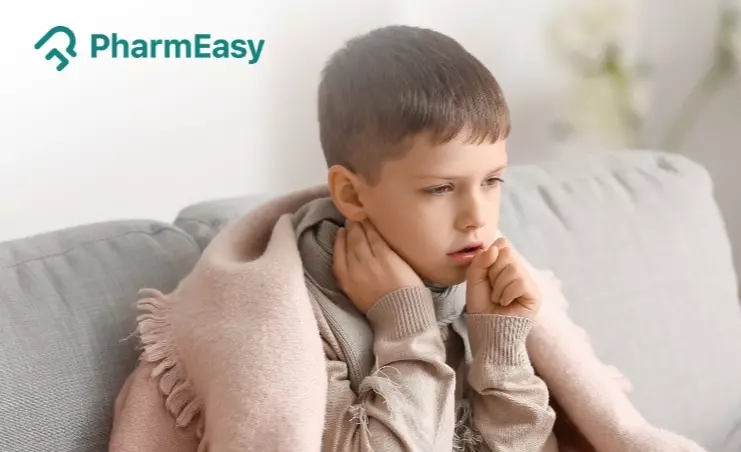
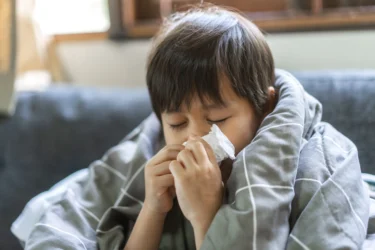
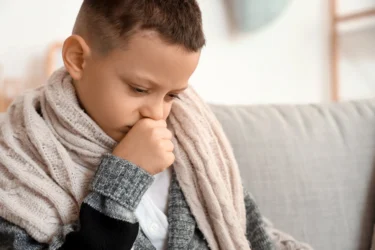
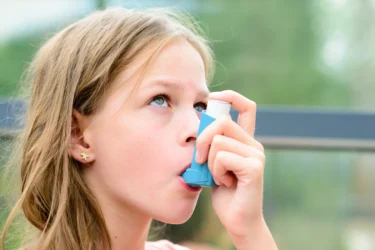
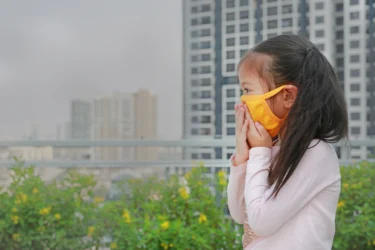
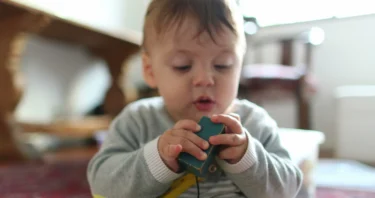






Comments